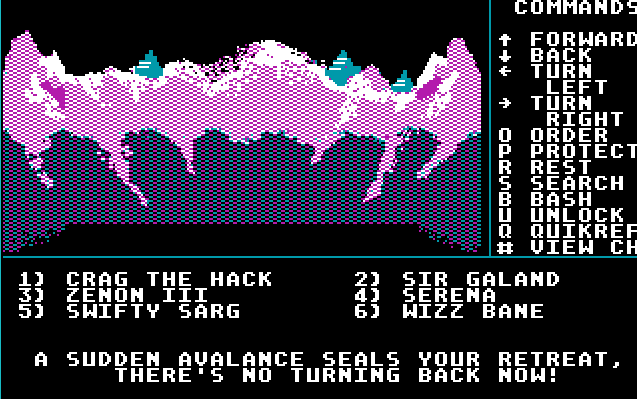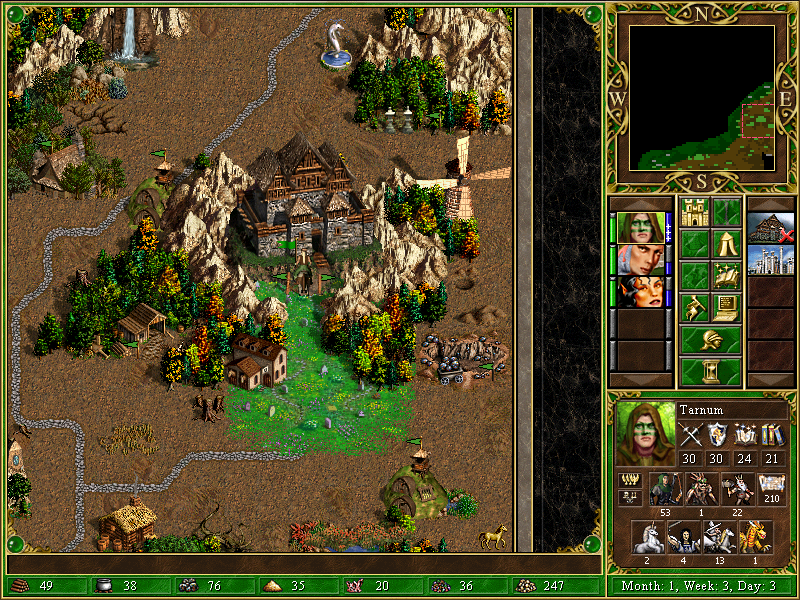
I came across this article from someone with similar gripes about "smart" technology to my own. He used the term "future chic" to describe the attitude behind getting smart appliances just for the sake of getting smart appliances. I rather like this term, and it ties into some other thoughts that I've had recently. It reminds me of the reaction I've seen to Yamaha selling a new model 5 CD changer. Now I'm not sure how "new" this is since I think Yamaha has been making them continuously since the 2000's. At the very least models from before this year aren't hard at all to find on Amazon or Ebay, and Yamaha itself offers several older models for sale dirctly on its website. In fact the new S303 seems to be a variant of the single disc S101, from just two years ago.
Yet the articles about it tend to be like this one. Befuddlement at the idea that anyone would dare make a new CD player in this day and age. Claims that streaming services have made physical media obsolete. Claims that it is impossible to even get CDs in this day and age. (I don't exactly live in a major metropolis, but I still know of several places within a short driving distance where I can pick up CDs, and that's without getting into online orders.) Now I would agree that a high end CD player is a specialty item today, just like it would be in 1985 for that matter. But that doesn't mean that there is no market for such a thing, just that it's not as wide of market as something like a smartphone. Why then all the hostility? Note that the site (at least on the day I linked to it) has a positive review of home theater projection systems shortly below the one about the CD changer, even though most people are not in the market for a projection system.
The problem is that CDs have been declared to be part of the past, man. They need to be elimianted so that we can feel comfortable living in the future. This is really what "future chic" means, as I understand it. Cultivating an idea that things are "futuristic-y" without worrying about benefits. Many people don't get "smart" thermostats because they actually believe that they will get huge energy savings. They get it because having a simple mercury switch thermostat is too old fashioned. Even a programmable one with a mere LCD display, and which doesn't even connect to the internet, is too stone age for them. Now they can't really name any benefits to the smart thermostat, and there are certainly many downsides, but they adopt them anyway.
So too with CDs. I have repeatedly encountered people who claim that CDs are obsolete without giving concrete reasons why beyond "today everyone does streaming." What I find especially notable is that I could name several benefits of streaming: for example you may not want to carry the CDs around or you might not want to buy a whole CD if you only like a couple songs on it. (Note that these issues can be better solved by using MP3/OGG or other music files; files which can easily be ripped from a CD, but that's another mater.) Obviously I think that the cons outweigh the pros, but I recognize that there are some minimal benefits. But the people who say CDs are obsolete don't even bring that stuff up. They simply say that you should stream now. Because that's what you do. It's the future man, get with the program. This is future chic at its core: adopting a technology purely because that's what's expected of you, without even asking for any benefit in return.
I've been using retro technology as a litmus test to see if people are worth talking too. I'm not looking for them to share an interest in retro technology. But I do want to see them have a conscious reason for rejecting it beyond "that's old." I call this "intentional technology use." That is, you use technology because you have a specific goal that the technology will help you accomplish. Future Chic is not goal oriented at all; it's using technology just to use technology. Intentional Technology Use is all about goals. So if you have very little storage space and you go to a purely streaming set up for that reason, this is Intentional Use of Technology. Obviously I think that there are big downsides to doing this, but you are still using technology in an intentional way, and I can respect that. But to go the other extreme, I have met with people who lament not being able to watch movies that they liked because they got rid of all their physical media, including DVDs and even blu-rays. They thought that they would be able to watch these things on streaming, but the licenses didn't line up. But they had space to store their old physical media, and they didn't get much if anything for selling/giving it away. So why did they get rid of it in the first place? Because they came to the conclusion that all physical media is something that should be in the past. It didn't matter that they were removing their own ability to do something they wanted to do, i.e. to watch certain movies. The future chic was more important.
I think part of why future chic is so alluring is that the world doesn't feel like the future. This is especially true if you go back a couple years so that we don't have the most recent so-called "AI" advances. Take a day in 2019 and compare the types of things that you do to what you did in 2009. Is it really that different? Even when it comes to streaming, more people were watching streamed content on Netflix than were renting DVDs. In contrast there's a huge differnece between 2009 and 1999. No smart phones, very limited internet, 3D graphics still at a very basic level, "streaming" consists of stuttering RealPlayer video, etc. 1999 to 1989 is similarly night and day, as is 1989 vs. 1979. The futuristic world of 2015 as portrayed in Back to the Future II seemed plausible at the time, since technology was developing at such a fast pace. Now it's hard to believe that many of the inventions of that movie, like flying cars or hoverboards, will be a reality even by 2053. The future died. But we based our whole modernist worldview on being the future. So we artificially enforce the present to be "the future" by arbitrarily focusing on certain technology while eiliminating others. This is why you get outright hostility to things like a new CD changer being made. The mere existence of people who play CDs and enjoy them is a threat to the idea that we really are in the future. (Note that we don't get the same hostility towards people who use the much older technology of vinyl records. This is because vinyl records have been approved by pop culture futurists as something that we are still allowed to enjoy in "the future.")
The saddest part about all of this is that if you are really into future chic you don't even attempt to be intentional with your technology use. The technology does not help fulfill any of your goals, and does not make your life better. Why does your fridge need a damned internet connection? Because it's the future! I'm sure that there's some reason why we'd have it in the future! But does the refridgerator actually work well to keep your food cool? Who cares? Old fridges did that too, and we don't want to live in the past. In the past technology could still be relied on to improve, because most people still bought new things to get a benefit out of it. Most people bought flat screen TVs not because they were "future-y" but because they had notably better picture quality than CRT tvs and they were much, much easier to move around. Some benefit had to be provided. There were some people who got the new things just because they were new, but they were a minority and companies did not cater primarily to them. Now that is the default mindset. Thus we get into situations where we can ask "Why should you adopt Windows 11?" and the answer is basically "it's one more than Windows 10, so it's more futuristic." In such an enviornment there is no motivation for Microsfot to make Windows 11 better, they are just motivated to make it different. And so that's what happens. All across the tech world random UI changes are much more common than real quality of life improvements or even bug fixes. You need a constant fresh coat of paint or people might think that they are using an old reliable technology rather than the "cutting edge."
Let's take a look at how future chic has affected another market: microwave ovens. Ever since I've seen this video, I've wondered if 1997 is "peak microwave technology." Seriously, compare the microwave in your house to the one in the video. How is your microwave any better? Can your microwave even reliably cook popcorn, twenty five years later? Here's a recent article from Good Housekeeping about microwaves from 2023. They are basically the same as the Sharp Carousel, except with fewer features (certainly none of them even approach having recipes built into the microwave.) But those aren't "smart" microwaves, right? We do have smart microwaves and all they really do is allow voice commands through things like Alexa... and brick when you can't connect to the server. Articles touting "smart" microwaves usually brag about features like sensor reheat, as if those didn't exist on the microwave from 1997. It's just now dependednt on an online server.
From a usability or "intentional use of technology" standpoint smart microwaves are a very small convenience (voice control) at a large cost (external dependence) and the loss of previous features. And let's be honest: you could easily make a microwave with built-in voice controls if you wanted to. This is not a technological revolution. From a "future chic" perspective the online dependence is the whole point. It's the future, of course it's online! What are we going to do with those online features... Uh... we'll figure something out! But at least we don't have a pea green LCD display!
Non-casual gamers have basically broken down into two camps. The first doesn't really care about whether a game is old or not, just whether it is fun. They might draw the line at some old games due to usability issues or extremely old graphics, like in Might and Magic 1:

But they wouldn't reject something like Heroes of Might and Magic 3, since it still looks and plays great.

This despite Heroes 3 being from 1999. The second camp is fully in the "newer is better," generally sticks to AAA games, and would try to argue that the above screenshot of Heroes 3 looks so abysmally ancient that no one could seriously play it. This is the "future chic" camp. They want to pretend like we're still in the situation where the next console launch is as impressive as the SNES in the NES world, N64 in the SNES world or Gamecube in the N64 world. That is, a console whose improvements completely blow the previous generation out of the water so that tons of new things are possible, and the current generation of games are things that we could only previously dream about. The fact is, 2D games have looked great since the late 90's and 3D games have looked great (at least when stylized) since the 10's. The differerences between generations is much harder to detect, despite what people may claim. They have to bring up sizes of texture, or minute resolution improvements (though often not framerate improvements) to have something concrete to point to.
Where things get really silly is the attitude towards remakes. While Heroes 3 is too ancient, its HD edition was acceptable (at least in 2015). This despite the graphics looking basically the same at a glance:

Yeah there's some AI upscaling that you can use to distinguish them (which I actually think looks ugly) and some different (ugly) fonts, but if you didn't look closely, they'd look like the same game. The saddest thing about all of this is that there's a fan HD mod which looks better and has tons of quality of life improvements. For example, in both Heroes 3 original and the official HD update, you can only see 5 heroes at a time in the bar on the right. But in the fan HD mod you can see 8 slots, which is important since that's the max meaning you never have to scroll through heroes. The original game was limited by low resolution, but the official HD edition did the same because they were lazily cashing in on the fact that they knew there were plenty of people who would only play a popular game if it had "better" graphics, where "better" means "more futuristic" (here the future chic term being "AI upscaling.") That's without getting into the things like one click transferring of armies or recruiting in towns that the fan HD mod added. You can see this sort of attitude pop up again and again in gaming: old games are "unplayable" because they are old, but an update which is substantially the same is fine because it includes some new graphical technique or adds a gimmick like motion controls. The future chic fan does not care about whether the game is good, he cares about whether he can say it is more futurey. It's no different than kids in the 90's saying "yeah, Gunstar Heroes looks good, but does Sega Genesis have Mode 7? Didn't think so" with the Sega fan responding "Yeah, but the SNES doesn't have blast processing!"
Anyway, you get the point by now. For a large chunk of the population it doesn't matter whether technology actually performs better, it matters if it feels like it is doing something new. The more tech jargon the better. Much of modern life, such as unnecessary dependence on phone apps, chasing after electric cars, use of "smart" technology, ugly architecture, etc. can be tracked back to this atttitude. It even shows up outside of consumer products. When electronic voting was expanded in the 2000's most computer scientists cautioned against it and said that it had no real benefits over using paper votes with scanning technology. The main point was that electronic systems have all sorts of additional failure points, and to be sure that votes are counted correctly you will need to have a printout that the voter verifies. At that point, why not just have the voter fill out the paper vote in the first place? Yet the concerns from computer scientists were shut down on the grounds of "it's the new millennium, who wants to use stone aged paper ballots?" The actual benefits didn't matter, just the perception.
If you're here you probably fall into the intentional use of technology camp. A plain minimal html homepage would cause a future chic guy's eyes to melt or something. But be aware that even though you may not adopt technology just because it seems "futurey" most people will.
December 29, 2023